Maldives
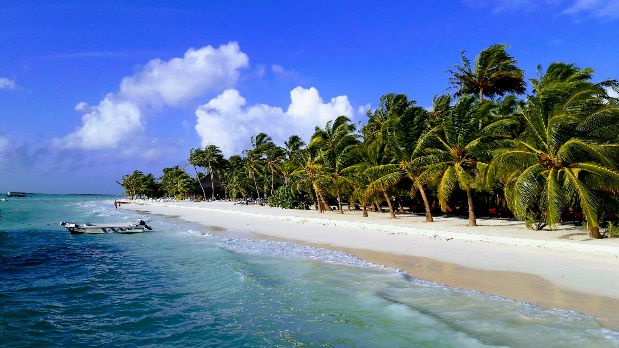
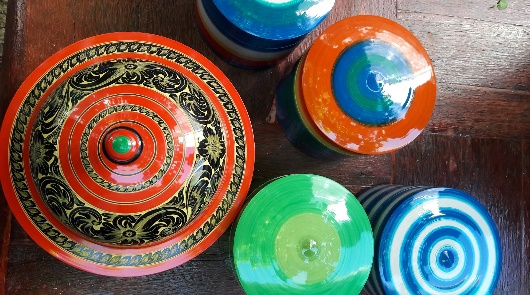
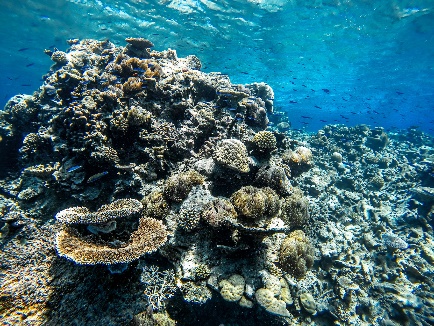
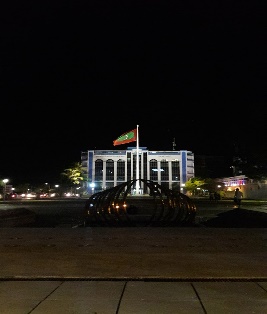
1. Activities (2021- )
| Month/ Year | Places (Prefecture, etc.) | Activities |
| 2024/11/26 | Tsukuba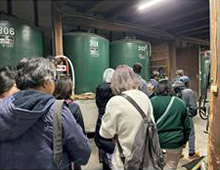 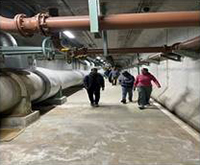 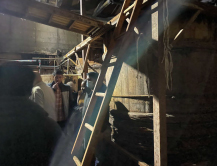 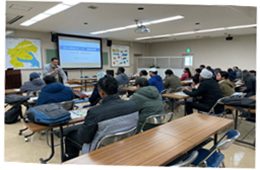 |
The participants visited a water treatment plant, a sake brewery, and a soy sauce brewery in the Kasumigaura Lake region to explore the potential of biotechnology in advancing a sustainable society. During the internship, they learned how biological processes are applied and managed. They also gained insight into agrotourism by studying the rich history of sake and soy sauce fermentation, discovering how these traditions are deeply intertwined with Japanese culture and Have contributed to the local community. |
| 2024/08/10-08/14 | Shanghai (China)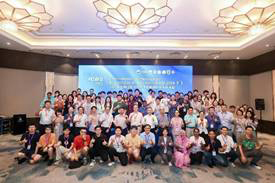 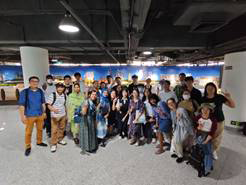 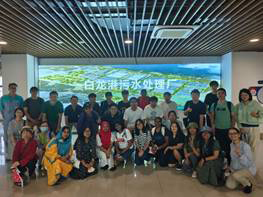 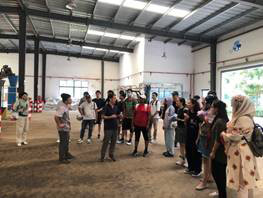 |
From August 10 to 11, the students attended the International Conference on Bioprocess and Sustainability 2024 (ICBS2024) organized by Shanghai Academy of Environmental Sciences, Tongji University, Shanghai University, Tsinghua University, Nankai University, Hainan University and University of Tsukuba. In this conference the students had a good communication with the 18 invited professors and about 300 participants on the advancements of biological processes and their contributions to sustainable development goals (SDGs). In the following three days, the students firstly visited Shanghai Mengqing Theme Park where they acquired the history of water pollution, sewage collection, and management in Shanghai. During the visit to Shanghai Bailonggang Wastewater Treatment Plant (WWTP), the largest WWTP in Asia, the students learned how this largest WWTP treats about one-third of the sewage and sludge produced in Shanghai and gradually improves its sustainability. In Shanghai Qingpu Agricultural Park, they deeply understood how the local farmers environmentally friendly manage their farmland including irrigation system and agricultural wastes with improved crop productivity and quality in the context of SDGs. |
| 2024/07/30-08/01 | Tohoku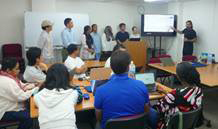 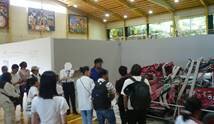  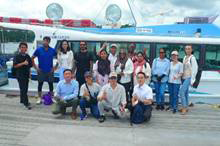 |
The participants visited disaster remains and museums in Miyagi and Iwate Prefectures to learn about the actual damage caused by the earthquake and tsunami of the Great East Japan Earthquake. The participants visited the Matsushima Coast and learned about the importance of tourism resources in the recovery process. Furthermore, they learned about the differences in disaster prevention efforts among various countries. |
| 2024/02/26 | Saitama & Tochigi 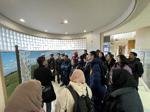 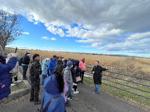 |
The participants visited the Metropolitan Area Outer Discharge Channel, which is designed to reduce flood disasters in the upstream areas from the Edo River to the Tone River. They collected information and exchanged views about its functions, effectiveness and costs about this world’s largest underground flood management facility. They also visited Watase Artificial Wetland, a Ramsar site, to gather information and exchange views about flood control, water supply, history of copper poisoning incident, wetland ecosystem and the role of annual controlled burning practices. |
| 2024/02/19-02/22 | Taiwan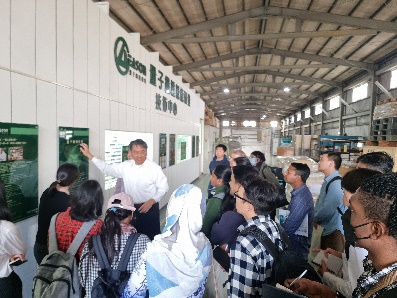 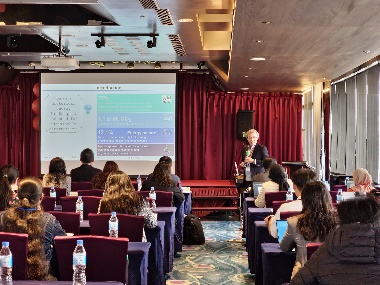 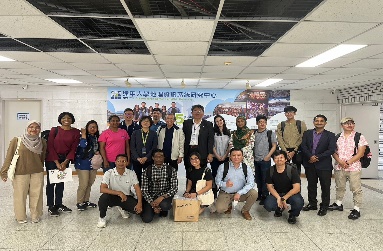 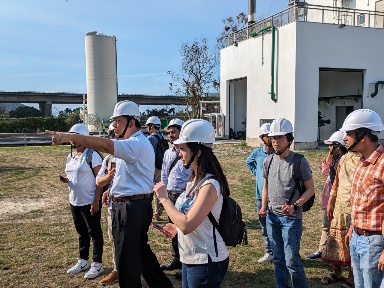 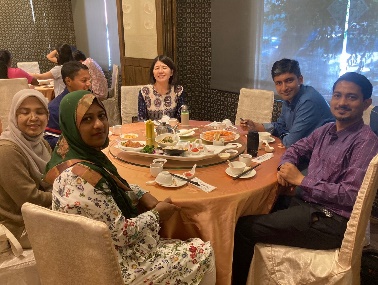 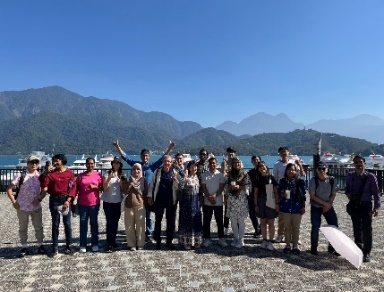 |
The filed study promoted international exchanges for r different disciplines, especially integrated solid waste management, material science, technology innovation for small island economy, and ways to meet sustainable development goals through the collaboration of industry, educational institutions, and local community members. Participants learned from different green technology institutes at Feng Chai University especially related to bioplastics and GIS. They also learned about international platform for biotechnology professionals to share technologies and research achievements through collaboration to develop relevant technologies in the bioenergy sector. |
| 2024/01/31 | Tokyo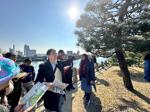 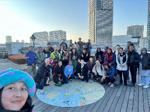 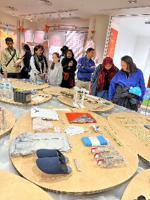 |
The participants visited areas in and around Tokyo to learn about flood and disaster preparedness and exchange views. In Tokyo, the participants gathered information about super levees along the Sumida River and the disaster prevention measures. Shioiri Park is located on the super levee that is designed for the evacuation site with emergency camp sites. They also visited Tokyo Rinkai Disaster Prevention Park in Tokyo Bay to experience disaster measures within 72 hours. Regarding private sector disaster management measure, they observed newly established Azabudai Hills. |
| 2023/12/02, 12/8 | TSUKUBA, Research Institute 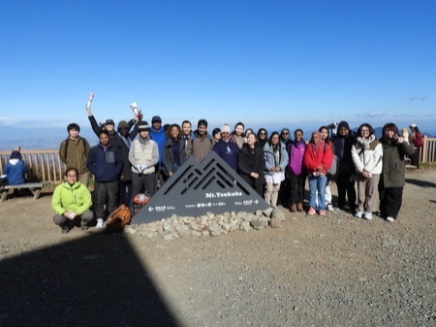 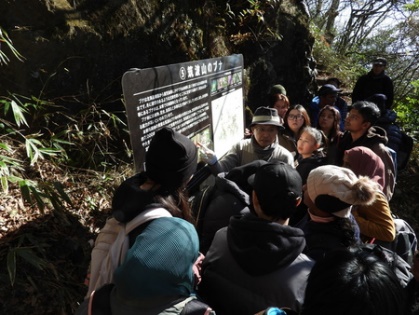 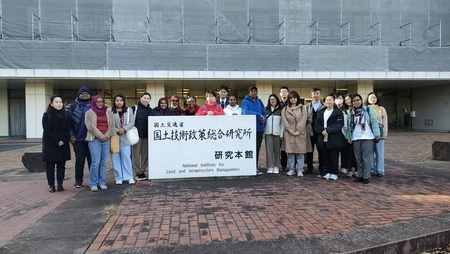 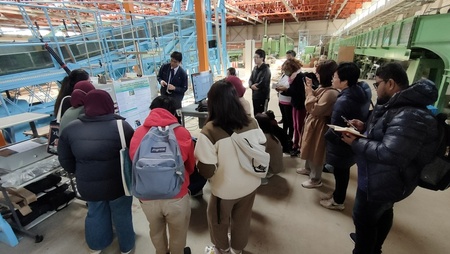 |
Tsukuba and received on-site explanations from Dr. Tanaka, an expert on the impact of climate change on beech forests in the area (2 Dec). At the National Institute for Land and Infrastructure Management (NILIM), the participants received training on sediment disasters and their countermeasures from Dr. Yamakoshi Director of the Erosion Control Research Office, and toured the experimental facilities. ibid. (8 Dec.). This enabled us to comprehensively enhance our knowledge on climate change issues from three perspectives: forecasting, natural effects (ecosystems) and social effects (disasters). |
| 2023/09/11-09/19 | Netherlands and Germany 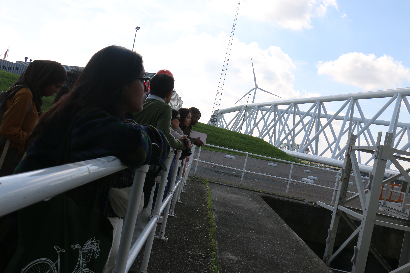 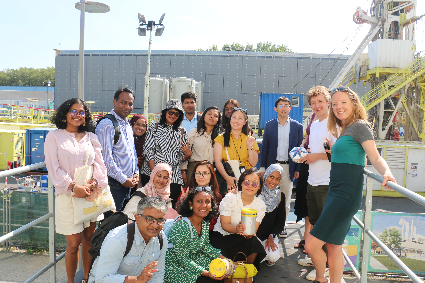 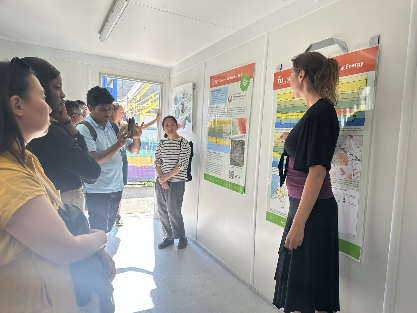 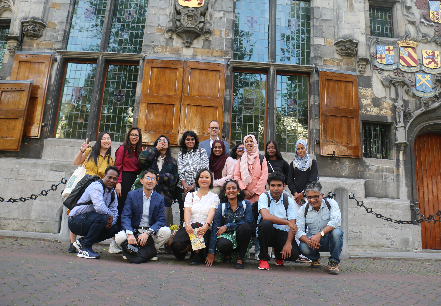 |
JDS students visited the cities of Amsterdam and The Hague to discuss the problems posed by climate change, flooding and other disasters to urban functions. They gathered information from discussions with city officials on how to restore canals while preserving their own traditional canal landscapes and on the latest methods of waste disposal in canals. They also visited disaster prevention facilities to protect economic facilities on major rivers from flooding and sea level rise and learnt more about unique technologies. At the same time, information was collected on how to deal with groundwater chlorination. In Delft, they were informed about a sustainable innovation project at the University of Technology called Green Village, which is created from community-industry partnerships, and the development of a geothermal power plant on campus. In addition, they attended a lecture and exchanged views with a representative at the office of the water board, the Netherlands' own water resources management organisation since the Middle Ages. In Rotterdam, information was collected on traditional Dutch water measures. They also visited a floating office and a community project on urban greening and collected information on urban planning while observing the redevelopment of water landscapes. In addition, they visited recycling case studies to hear local opinions. At the Rhine River Commission in Koblenz, researchers from the organisation provided detailed information on the transboundary management system for the entire Rhine River. In Düsseldorf, they visited one of the largest urban greening projects in Germany and saw how trees in huge buildings are managed. Overall, the JDS students gained information on Dutch and German cutting-edge attempts in water management and climate change and urban and rural development, and were able to compare them with examples from their own countries and seek solutions to their own problems. |
| 2023/09/13-09/15 | Osaki Town (Kagoshima) 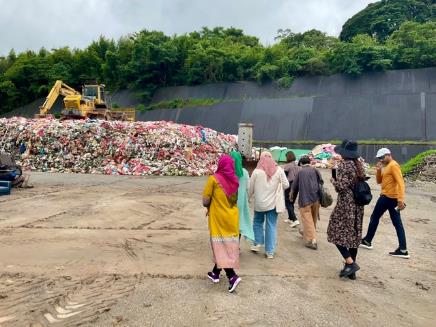 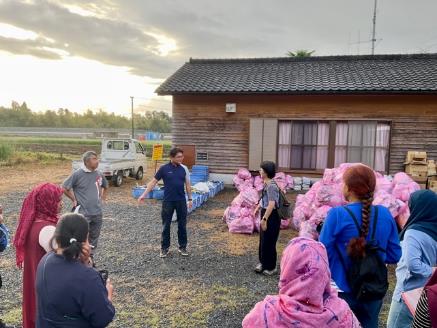 The length of the text is adjustable |
The participants visited Osaki Town, Kagoshima Prefecture, to learn about thorough resource recycling and circular society (i.e., the Osaki System), which Osaki has progressed through close collaboration among the municipal government, residents, and private companies under their original concept of Circular Village. During the field trip, they visited the final disposal site, organic and non-organic waste recycling facilities, local community waste collection, shochu (distilled spirit) factory, and eel farm. We also had special lectures by local experts from Osaki Town Office and Osaki SDGs Promotion Council. On the last day, the participants presented the characteristics of the Osaki System and the applicability of the system to their home countries. They discussed this with the local experts. |
| 2023/09/10-09/12 | Miyagi and Iwate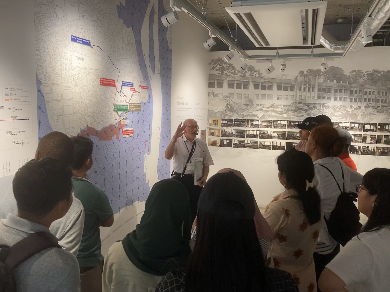 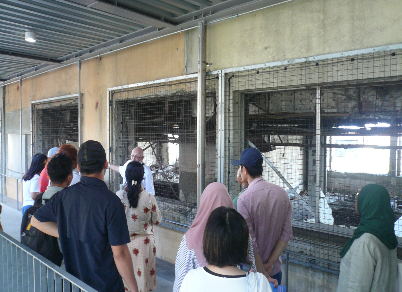 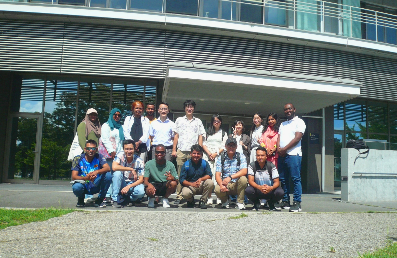 |
Participants visited ruins and museums related to the Great East Japan Earthquake in Miyagi and Iwate Prefectures, where they learned about the actual impact of earthquakes and tsunami disasters. They observed the distinctive geographical features of the Tohoku region's Pacific coastal area, which contribute to the expansion of tsunami damage in coastal areas. They also visited Tohoku University and attended a special lecture on the role of the ocean in disasters and abnormal weather. Participants engaged in discussions and exchanged opinions on disaster prevention challenges in various countries around the world. |
| 2023/02/11-02/18 | Kansai (Kyoto・Osaka・Kobe)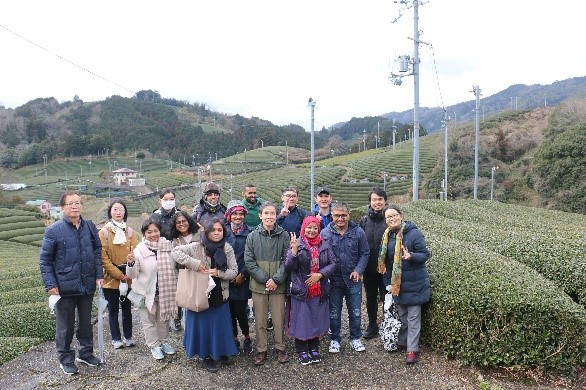 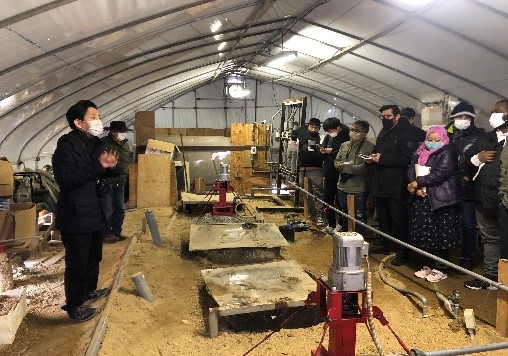 |
From February 11 to 18, 2023, the participants attended lectures by three researchers from Kyoto University and Kobe University, and learned academic and practical knowledge on water environment management, wastewater/waste treatment and resource recovery and biomass energy production, organic and smart agriculture through visits to Lake Biwa Museum, Yagi Bioecology Center, Wazuka Town, Kyoto University Graduate School of Agriculture Farm, Lake Biwa/Yodo River Water Quality Conservation Organization, Kobe City Higashinada Treatment Plant and Yuge Farm. Through visits to the Kyoto Graduate School of Agriculture farm, the Lake Biwa-Yodo Water Quality Conservation Organization, the Kobe Higashinada Treatment Plant, and the Yumigake Farm, participants acquired academic and practical knowledge about water environment management, wastewater/waste treatment/resource recovery and biomass energy production, organic farming and smart farming. Finally, through group work and presentations, students gained a deeper understanding of sustainable water environment management, agriculture, and environmental conservation. |
| 2023/01/31-02/03 | Amamiohsima (Kagoshima) 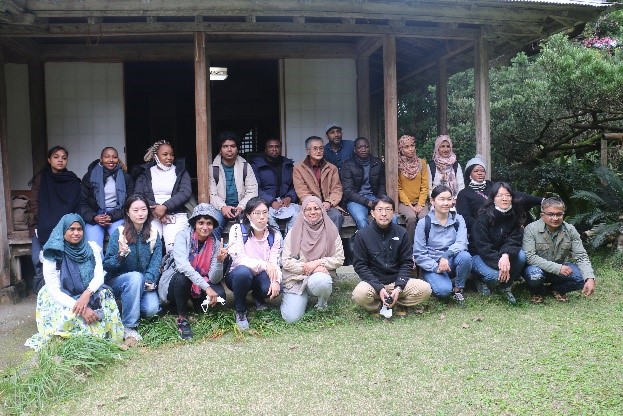 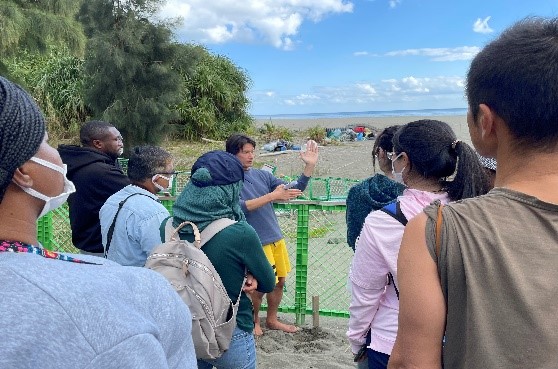 |
The JDS students visited Amami Oshima Island, which will be registered as a World Heritage site in 2021, to gather information and exchange views on the conflict between biodiversity conservation and regional development, the ideal form of ecotourism, future utilization of World Heritage natural resources, and disaster prevention measures in the region. The JDS students first learned about endangered and invasive species on Amami Oshima from local experts. Based on this, they participated in ecotourism through a certification program for guides. At the same time, they learned how to sustain the nature conservation required by the World Heritage registration from the construction administration-oriented economy that has continued for many years since the end of World War II. Furthermore, they gained the ability to analyze how disaster prevention measures due to global warming and typhoons are related to the sustainability of the local economy and environment. |
| 2023/01/25 | Kasaikaihin park・Tokyominatorie・Asakusa・Shioiri park (Tokyo) 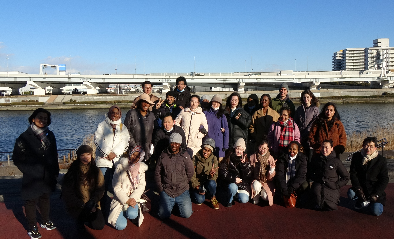 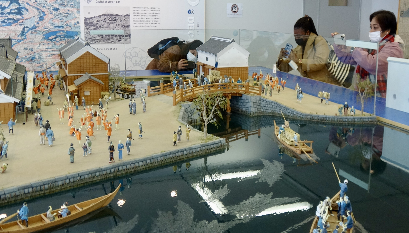 |
In this activity, the group visited a Ramsar site in Tokyo to observe species conservation and public access. They also visited a museum to obtain an overall picture of the history of Tokyo's bayfront development and disaster prevention. Furthermore, to learn about the Tokyo Metropolitan Government's disaster prevention activities in the Sumida River basin, they visited super levees, bridges, and disaster prevention equipment to gather information and exchange views on countermeasures against urban disasters. This enabled the JDS students to examine the future of disaster prevention measures in their own countries by comparing them with examples from their own countries. |
| 2022/12/07-12/09 | Kitakyusyu (Hukuoka) 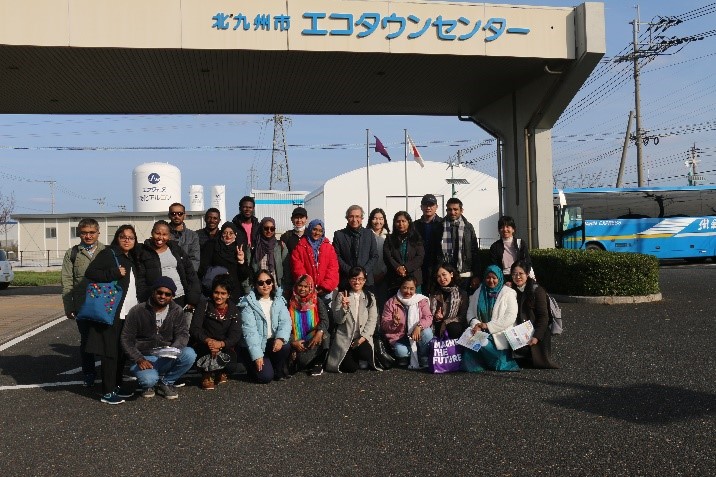 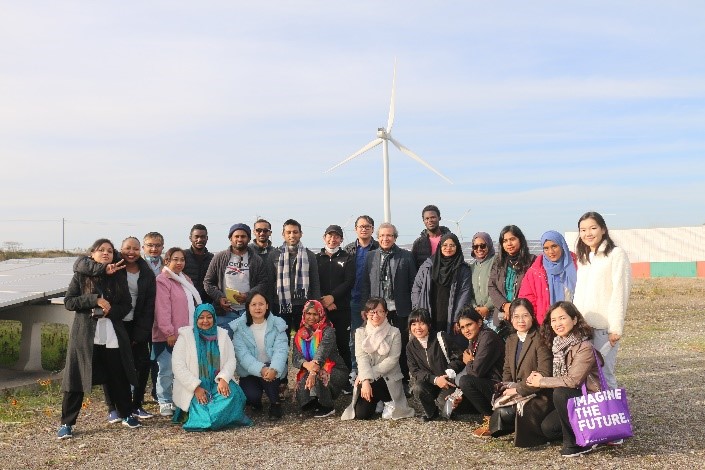 |
During this field study, we visited Kitakyushu Eco-Town and learned about the importance of cooperation between industry, government, and the city. Here, the students learned about recycling technologies for plastic bottles and e-waste. They also learned about wind and solar power generation systems in the Eco-Town complex. They also visited Yamaguchi Dairy's biogas plant, which produces biogas from by-products and waste from the dairy industry and uses it as an energy source for the industry. Finally, the students visited an incineration and resource recovery facility in Shimonoseki City. The students were able to understand the importance of having a life cycle thinking about resource management. |
| 2022/12/06 | Metropolitan Area Outer Discharge Channel (Saitama) and Watarase Wetland (Tochigi)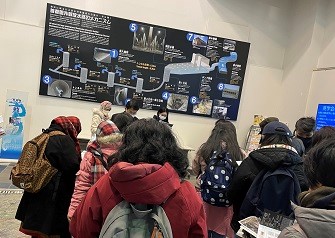 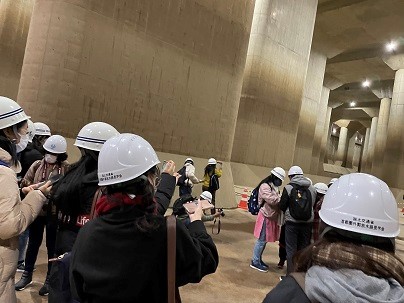 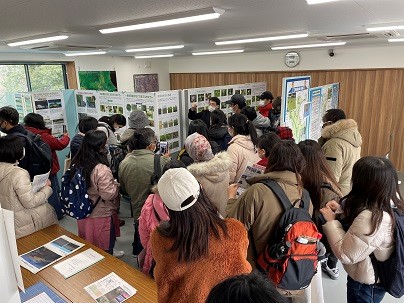 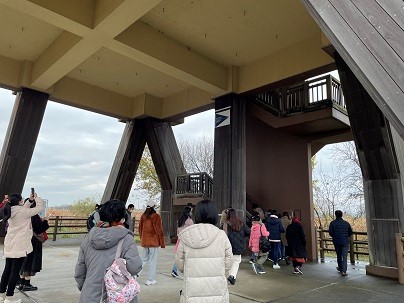 |
The participants visited the Metropolitan Area Outer Discharge Channel in Saitama Prefecture and Watarase Wetland in border areas of Tochigi, Ibaraki, Gunma, and Saitama prefectures. This training focused on flood control and wetland management in the Kanto region. At the Outer Discharge Channel, the JDS students visited the world's largest underground flood control facility, which is designed to reduce rising water levels in four surrounding rivers. Guided tour gave them detailed information about this facility and its functions. This allowed the JDS students to gather information and exchange opinions on the possibility of organized infrastructure development. At Watarase Wetland, the students learned about the reservoir's role in controlling flooding of the Watarase River, which flows around Furukawa City, to improve water quality, provide water for agriculture and domestic use, and conserve wetlands and birds under the Ramsar Convention. They also gathered information on the damage caused by the 2019 typhoon. In addition, the site's former Yanaka Village was the site of eviction during the Ashio Mine Poisoning Incident at the beginning of the 20th century, allowing the group to gather information and exchange views on the pollution movement in Japan. |
| 2022/11/22 | Yokota farm (Ibaraki)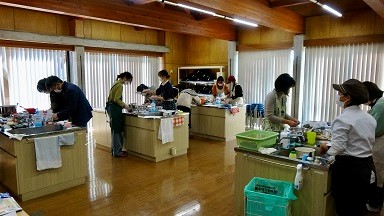 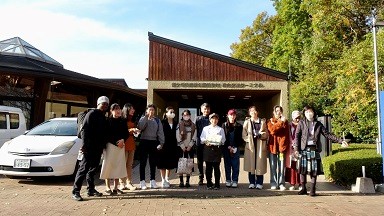 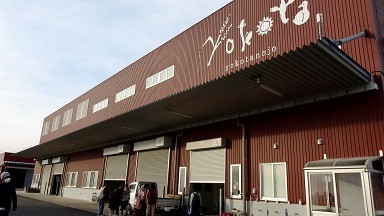 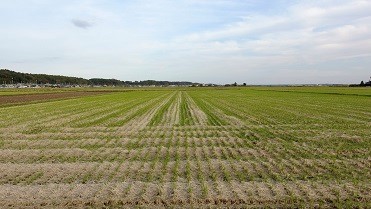 |
The training on food and agriculture was conducted at Yokota Farm. This smallholder business has cultivated rice in Ibaraki Prefecture for several hundred years. After being incorporated as business entity about ten years ago, Yokota Farm has received Emperor's Award and the Minister of Agriculture, Forestry, and Fisheries Award for its good example in small-scale farming businesses. JDS Fellows visited the farm and collected information from Mr Yokota and his wife on farm management, value chain, food education, measures for abandoned land, and agricultural tourism. They were also able to gather information and exchange opinions on methods of preserving and sorting harvested rice, mechanization, and cost reduction. |
| 2022/09/14-09/16 | Osaki Town (Kagoshima)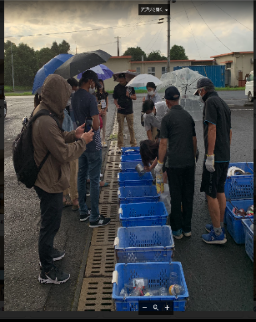 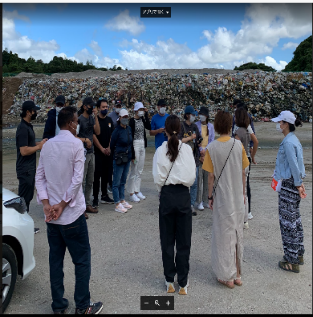 |
The participants visited Osaki Town in Kagoshima Prefecture to learn about the formation of a recycle-oriented society. It developed a “Osaki System,” in which general waste materials are thoroughly separated, sorted and recycled. The tour included lectures and discussions by Osaki Town environmental officials (including a JICA-supported project for horizontal deployment in Indonesia) and tours of various facilities (final disposal landfill, recycling facility, general waste incineration facility, and resource waste base collection). The participants also learned about town’s policies to promote youth immigration as part of regional revitalization and regional exchange through recycling. On the final day, the participants made presentations on the challenges and strengths of promoting resource recycling in their home countries under the theme of the applicability of the Osaki system to their home countries, and received advice from Osaki Town officials. |
| 2022/09/06-09/08 | Ryukyu University (Okinawa)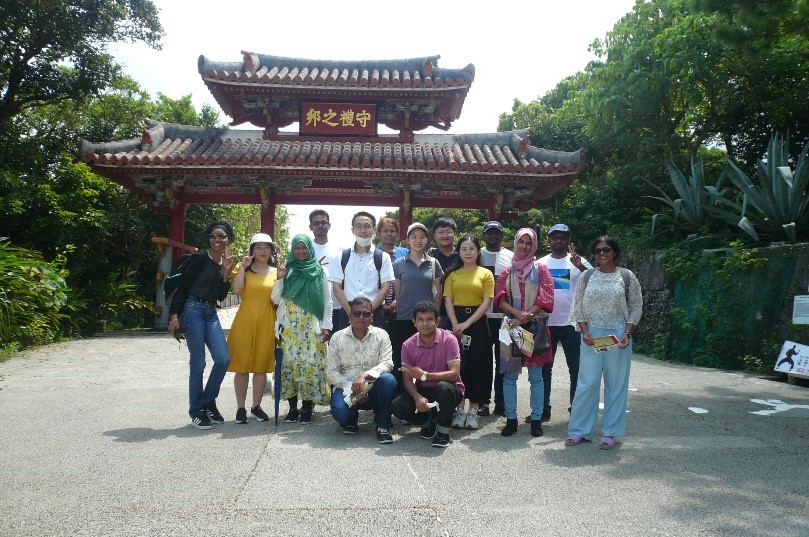 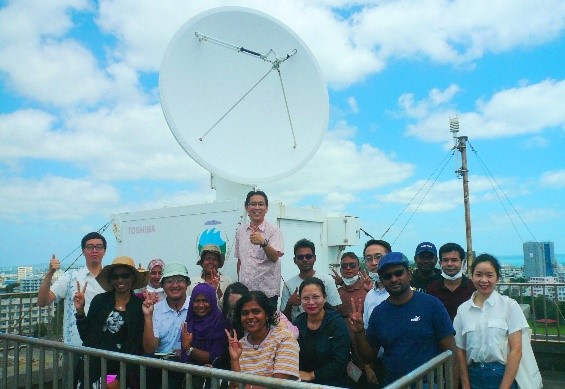 |
The Participants listened to lectures on tropical storms and meteorology by two researchers from Ryukyu University. They visited the Fujukan Museum on the Ryukyu University campus and learned about the relationship between natural disasters and ecosystems. They acquired information about the industry and tourism in the Okinawa Islands through a tour of Shurijo Castle. Based on what they learned, they engaged in group work and deepened their understanding of sustainable development and environmental conservation through presentations and discussions. |
| 2022/08/28-08/31 | Kushiro (Hokkaido)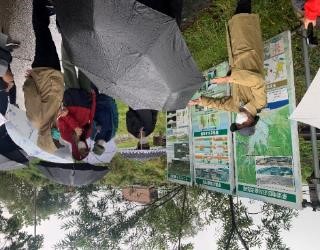 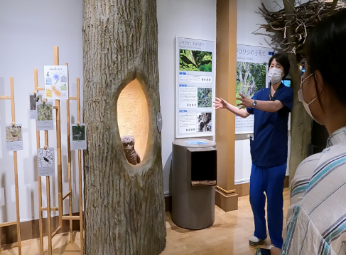 |
The participants visited the Kushiro Wetland area in Hokkaido to deepen their understanding about marshland ecosystem services, conservation of red-crowned cranes (a national protected species) and rare plants and animals, ecosystem conservation measures through the Old River Restoration Project, and eco-tourism promotion by visiting facilities (Akan International Crane Center, Wildlife Conservation Center, and Kushiro Construction Department of MLIT) and relevant areas. On the last day, the participants presented about the conservation of the Kushiro Marsh ecosystem and lessons learned for environmental conservation, disaster prevention, and industrial promotion in comparison to their home countries. They received advice on their presentations from experts. |








